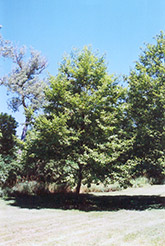It's all about ...
plants

Height: 40 feet
Spread: 30 feet
Sunlight:
![]()
![]()
![]()
Hardiness Zone: 3b
Other Names: Siberian Alder
Description:
Alders tend to prefer wet, riverbank sites but this species is rather adaptable to drier conditions; a decent shade tree with no outstanding attributes but no great negatives, either; purple catkins are interesting in spring
Ornamental Features
Manchurian Alder has deep purple catkins hanging below the branches in early spring before the leaves. It has grayish green deciduous foliage. The oval leaves turn yellow in fall.
Landscape Attributes
Manchurian Alder is a deciduous tree with an upright spreading habit of growth. Its average texture blends into the landscape, but can be balanced by one or two finer or coarser trees or shrubs for an effective composition.
This is a relatively low maintenance tree, and is best pruned in late winter once the threat of extreme cold has passed. It has no significant negative characteristics.
Manchurian Alder is recommended for the following landscape applications;
- Shade
- Naturalizing And Woodland Gardens
Planting & Growing
Manchurian Alder will grow to be about 40 feet tall at maturity, with a spread of 30 feet. It has a low canopy with a typical clearance of 5 feet from the ground, and should not be planted underneath power lines. It grows at a medium rate, and under ideal conditions can be expected to live for 70 years or more.
This tree performs well in both full sun and full shade. It is quite adaptable, prefering to grow in average to wet conditions, and will even tolerate some standing water. It is not particular as to soil type or pH. It is somewhat tolerant of urban pollution. This species is not originally from North America.
This plant is not reliably hardy in our region, and certain restrictions may apply; contact the store for more information.
